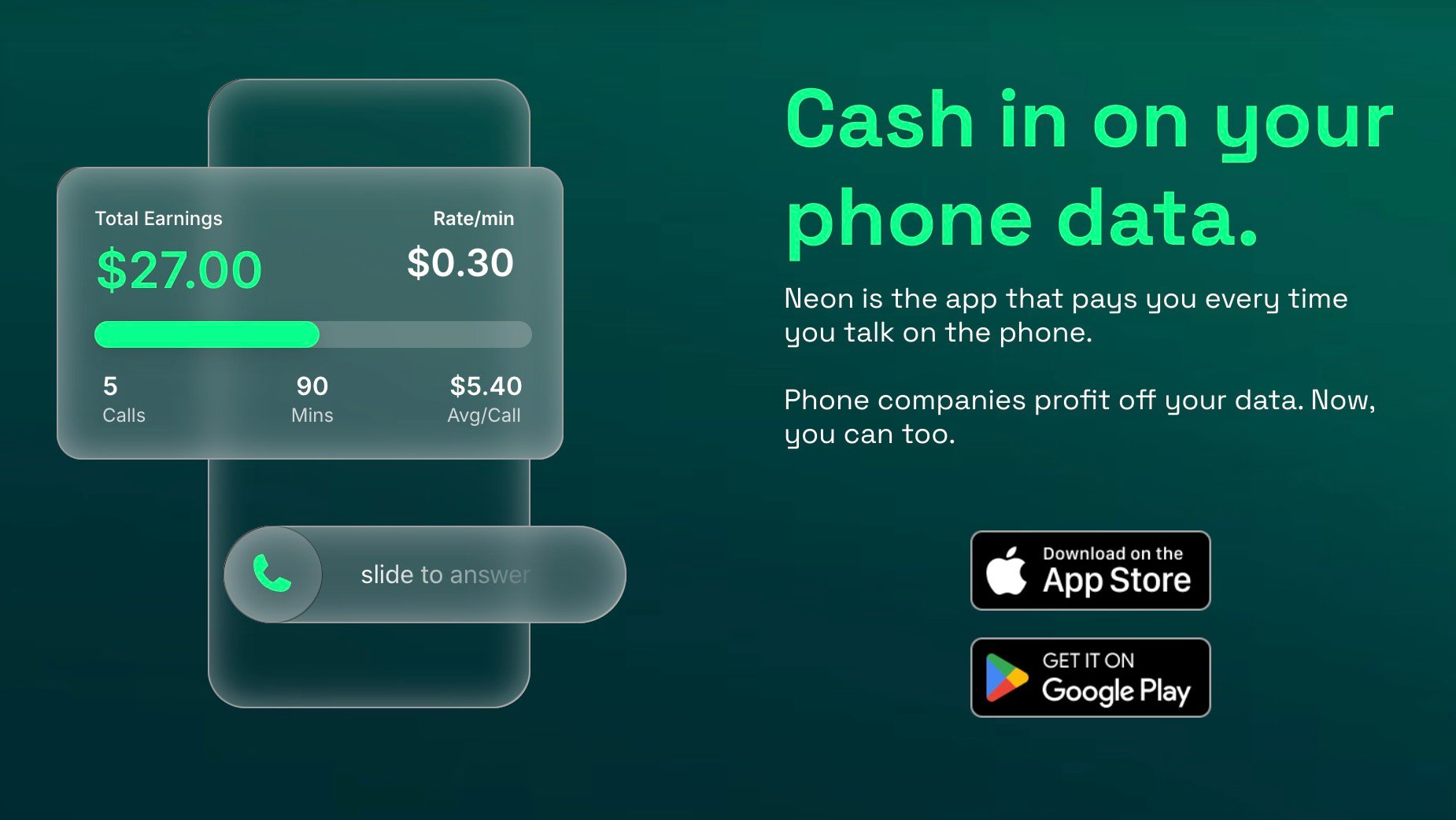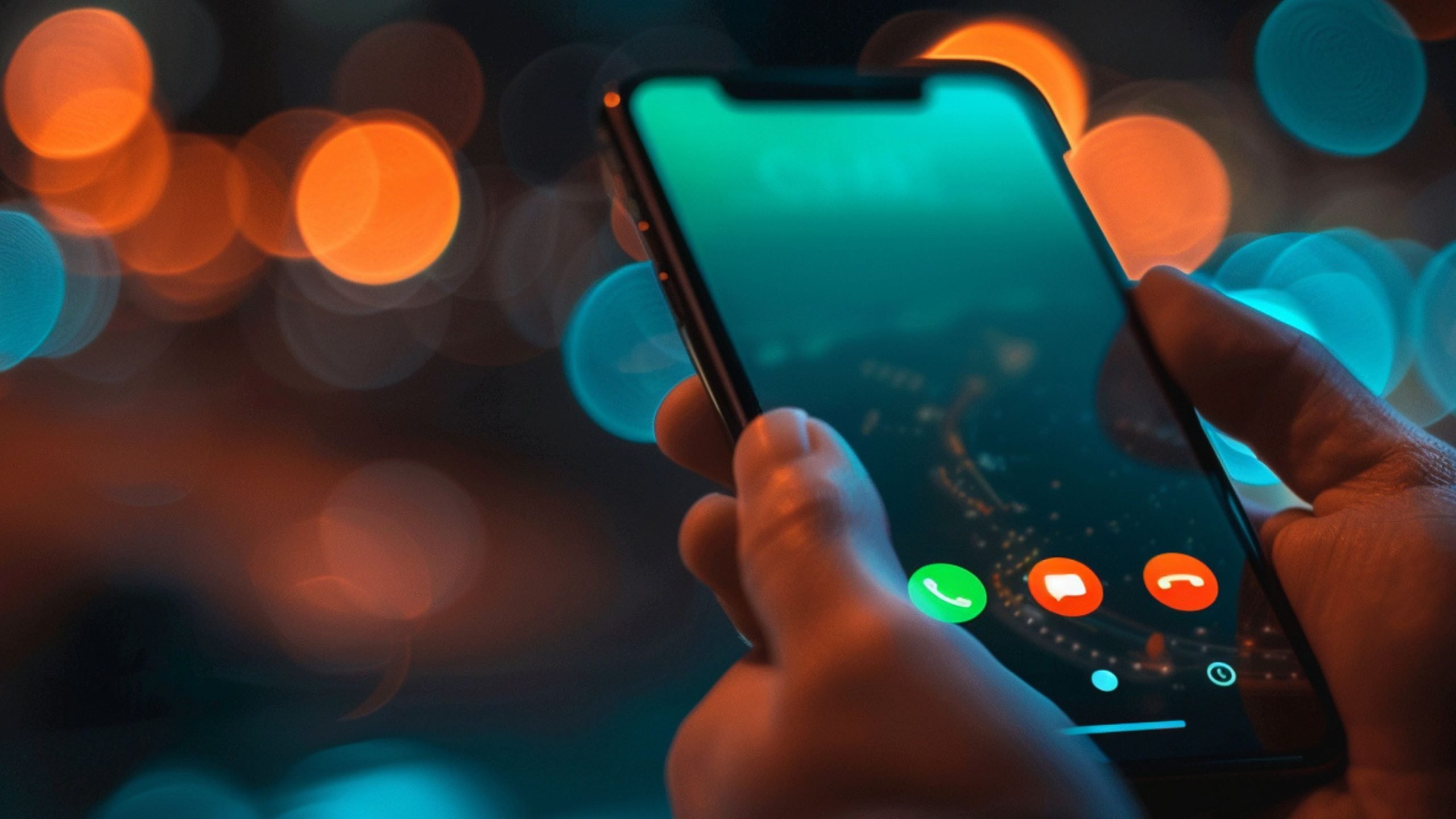An app that pays users for access to their phone call audio has surged to the top of Apple’s US App Store rankings, reflecting a growing willingness to exchange personal privacy for small financial rewards.
Neon Mobile, which now ranks second in the Social Networking category, invites users to record their calls in exchange for cash.
Those recordings are then sold to companies building artificial intelligence systems.
The pitch is framed as a way to earn extra income, with Neon promising “hundreds or even thousands of dollars per year” to those who opt in.
The business model is straightforward. Users are paid 30 cents per minute when they call other Neon users, and they can earn up to $30 a day for calls made to non-users.

Referral bonuses are also on offer. Appfigures, a platform that tracks app performance, reported that Neon was ranked No. 476 in its category on September 18.
Within days, it had entered the top 10 and eventually reached the No. 2 position for social apps. On the overall charts, it climbed as high as sixth place.
Neon’s terms confirm that it records both incoming and outgoing calls. The company says it only captures the user’s side of a conversation unless both participants are using the app.
These recordings are then sold to AI firms to assist in developing and refining machine learning systems, according to the company’s own policies.
What’s being offered is not just a phone call service. It’s a pipeline for training AI with real human voices, and users are being asked to provide this data willingly. The high ranking of the app suggests that some are comfortable giving up personal conversations in return for small daily payouts.
However, beneath the simple interface is a license agreement that gives Neon sweeping control over any recording submitted through the app. It reads:
“Worldwide, exclusive, irrevocable, transferable, royalty-free, fully paid right and license (with the right to sublicense through multiple tiers) to sell, use, host, store, transfer, publicly display, publicly perform (including by means of a digital audio transmission), communicate to the public, reproduce, modify for the purpose of formatting for display, create derivative works as authorized in these Terms, and distribute your Recordings, in whole or in part, in any media formats and through any media channels, in each instance whether now known or hereafter developed.”
This gives the company broad latitude to share, edit, sell, and repurpose user recordings in virtually any way, through any medium, with no expiration or limitations on scope.
Users maintain copyright over their recordings, but that ownership is heavily constrained by the licensing terms.
Although Neon claims to remove names, phone numbers, and email addresses before selling recordings, it does not reveal which companies receive the data or how it might be used after the fact.
The risks go beyond marketing or analytics. Audio recordings could potentially be used for impersonation, scam calls, or to build synthetic voices that mimic real people.
The app presents itself as an easy way to turn conversations into cash, but what it truly trades on is access to personal voice data. That trade-off may seem harmless at first, yet it opens the door to long-term consequences few users are likely to fully consider.










